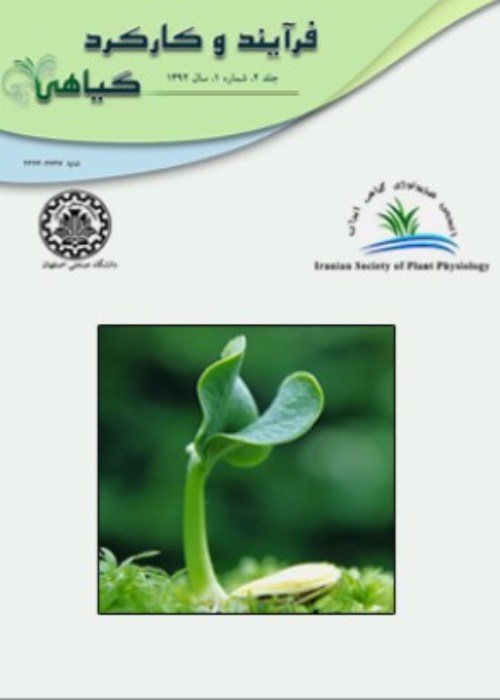Investigating the effects of biochar application on the biochemical characteristics and concentration of some nutrients under saltwater stress in rose (Rosa hybrida)
Soil salinity is one of the most important abiotic factors that has an adverse effect on plant growth. Despite the difference in salt tolerance among different varieties and species of roses, saline soils contain a significant concentration of salt, which can damage rose species in green spaces irrigated with saline water. This research was conducted in order to investigate the effect of different levels of pistachio tree biochar on some biochemical properties of rose, based on a factorial experiment with a 3x4 arrangement and a completely randomized design with four replications. This research included two factors: biochar at four levels (no application, 25, 50 and 100 gr per 1 kg of potting soil) and salinity from sodium chloride salt at three levels (0, 75 and 150 mM). The results showed a decrease in petal anthocyanin as well as an increase in proline and total phenol following the increase in salinity. However, the use of biochar in the amount of 3 kg at a stress of 75 mM increases petal anthocyanin, potassium, and the ratio of potassium to sodium by 1.17, 1.02, and 1.26 times, respectively, and decreases proline, total phenol, and sodium, respectively. It was found to be 0.87, 0.41 and 0.81 times higher compared to the control treatment. 75 mM salinity increases carbohydrates, antioxidants, and flavonoids by 1.03, 1.02, and 1.02 times, respectively, and decreases calcium and iron by 0.92 and 0.71 times, respectively, compared to the control (no use). from Biochar) On the other hand, biochar at the level of three kilograms caused a significant decrease in flavonoids by 0.99 times and an increase in iron by 1.22 times compared to the control. In general, it can be said that three kilograms of biochar had a significant effect on reducing the negative effects of salinity stress resulting from irrigation on rose plants. For this reason, the use of biochar in order to reduce the adverse effects of salinity stress in salinity-sensitive plants, including roses, and considering the expansion of saline lands in the world and especially in Iran, is important and plays a significant role in compensating for the resulting damage. Therefore, it is suggested that it be tested on a larger scale (farm level) as well as other stress factors such as cold, heat and drought.
- حق عضویت دریافتی صرف حمایت از نشریات عضو و نگهداری، تکمیل و توسعه مگیران میشود.
- پرداخت حق اشتراک و دانلود مقالات اجازه بازنشر آن در سایر رسانههای چاپی و دیجیتال را به کاربر نمیدهد.



